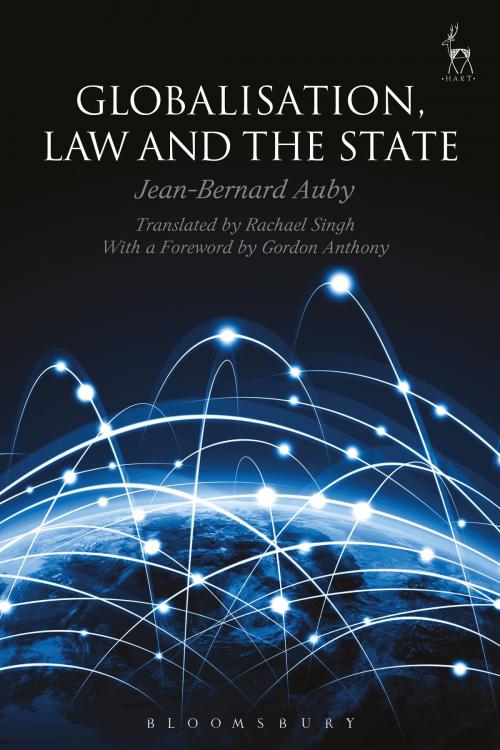Globalisation, Law and the State
Nonfiction, Reference & Language, Law, International, Constitutional| Author: | Jean-Bernard Auby | ISBN: | 9781509903535 |
| Publisher: | Bloomsbury Publishing | Publication: | February 23, 2017 |
| Imprint: | Hart Publishing | Language: | English |
| Author: | Jean-Bernard Auby |
| ISBN: | 9781509903535 |
| Publisher: | Bloomsbury Publishing |
| Publication: | February 23, 2017 |
| Imprint: | Hart Publishing |
| Language: | English |
Globalisation, Law and the State begins – as is customary in globalisation literature – with an acknowledgement of the definitional difficulties associated with globalisation. Rather than labour the point, the book identifies some economic, political and cultural dimensions to the phenomenon and uses these to analyse existing and emerging challenges to State-centric and territorial models of law and governance.
It surveys three areas that are typically associated with globalisation – financial markets, the internet, and public contracts – as well as trade more generally, the environment, human rights, and national governance. On this basis it considers how global legal norms are formed, how they enmesh with the norms of other legal orders, and how they create pressure for legal harmonisation. This, in turn, leads to an analysis of the corresponding challenges that globalisation presents to traditional notions of sovereignty and the models of public law that have grown from them.
While some of the themes addressed here will be familiar to students of the European process (there are prominent references to the European experience throughout the book), Globalisation, Law and the State provides a clear insight into how the sovereign space of States and their legal orders are diminishing and being replaced by an altogether more fluid system of intersecting orders and norms. This is followed by an analysis of the theory and practice of the globalisation of law, and a suggestion that the workings of law in the global era can best be conceived of in terms of networks that link together a range of actors that exist above, below and within the State, as well as on either side of the public-private divide. This book is an immensely valuable, innovative and concise study of globalisation and its effect on law and the state.
Globalisation, Law and the State begins – as is customary in globalisation literature – with an acknowledgement of the definitional difficulties associated with globalisation. Rather than labour the point, the book identifies some economic, political and cultural dimensions to the phenomenon and uses these to analyse existing and emerging challenges to State-centric and territorial models of law and governance.
It surveys three areas that are typically associated with globalisation – financial markets, the internet, and public contracts – as well as trade more generally, the environment, human rights, and national governance. On this basis it considers how global legal norms are formed, how they enmesh with the norms of other legal orders, and how they create pressure for legal harmonisation. This, in turn, leads to an analysis of the corresponding challenges that globalisation presents to traditional notions of sovereignty and the models of public law that have grown from them.
While some of the themes addressed here will be familiar to students of the European process (there are prominent references to the European experience throughout the book), Globalisation, Law and the State provides a clear insight into how the sovereign space of States and their legal orders are diminishing and being replaced by an altogether more fluid system of intersecting orders and norms. This is followed by an analysis of the theory and practice of the globalisation of law, and a suggestion that the workings of law in the global era can best be conceived of in terms of networks that link together a range of actors that exist above, below and within the State, as well as on either side of the public-private divide. This book is an immensely valuable, innovative and concise study of globalisation and its effect on law and the state.















